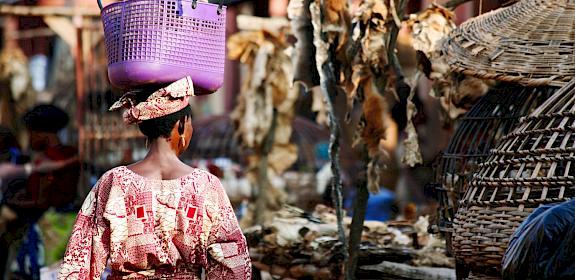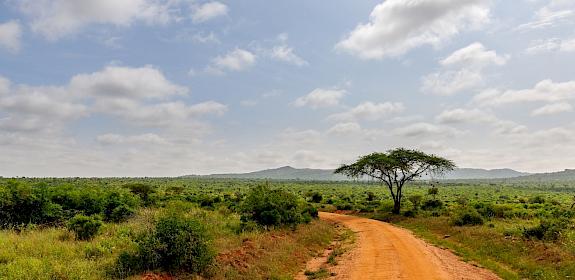Captive-breeding claims turned turtle
Philippines, July 2015—Paradoxically, the successful hatching of a fertile Palawan Forest Turtle Siebenrockiella leytensis egg provides further evidence that wildlife traffickers are making bogus claims about captive-breeding of reptiles, according to TRAFFIC, Katala Foundation Inc. (KFI) and Wildlife Reserves Singapore.

The egg was laid before its release by a recently seized gravid female Palawan Forest Turtle. In June, more than 4000 Palawan Forest Turtles were seized by authorities in the Philippines.
The Palawan Forest Turtle is fully protected under domestic legislation, which prohibits international and domestic trade in wild-caught individuals. However, international trade in captive-bred animals is permitted under this law and also under CITES (the Convention on International Trade in Endangered Species of Wild Fauna and Flora), even though the species has never been bred in captivity. To get around the legislation, unscrupulous traders label shipments of wild-caught animals as captive-bred.
“While KFI staff are proud to have managed a successful incubation, the difficulties in breeding the species in captivity provide strong evidence that any ‘captive-bred’ Palawan Forest Turtles occurring in trade are far more likely either wild-caught or hatched from wild-caught females already gravid when captured,” said Sabine Schoppe of KFI.
The Palawan Forest Turtle is highly sensitive to stress and for almost two years KFI and Wildlife Reserves Singapore have attempted to breed it in captivity in order to establish an assurance colony for conservation purposes. However, they have yet to succeed and while eggs have been laid, they have proved to be infertile.
“Millions of reptiles are being stolen from the wild and laundered into the global pet trade every year,” said Dr Chris R. Shepherd, Regional Director of TRAFFIC in Southeast Asia.
“Corruption, weak enforcement efforts and insufficient capacity all enable the laundering, and unscrupulous dealers are making big money, virtually risk-free.”
The Palawan Forest Turtle is a Critically Endangered freshwater turtle, endemic to Palawan island in The Philippines. It is threatened by over-exploitation for the international pet trade, for food and for use in traditional Chinese medicine (TCM) as well as destruction of its aquatic habitat.
In 2007, KFI adopted the Palawan Forest Turtle as its focal species and is working to address the urgent threats and vast knowledge gaps with a number of in-situ and ex-situ conservation actions. KFI is financially assisted by various international organizations and local partners such as the DENR-BMB and PCSDS.
For the past two years, KFI and Wildlife Reserves Singapore have collaborated on improving conservation breeding facilities of KFI’s assurance colony in Narra, Palawan.
In Southeast Asia, TRAFFIC works closely with KFI and WRS to combat the laundering and illegal trade in a multitude of reptiles, including the Palawan Forest Turtle.
The organizations strongly encourage authorities to take action against the illegal trade, including through frequent inspections of breeding facilities and of shipments declared as captive bred.
“Source and demand countries need to prioritize action against the criminals who are robbing countries of their natural resources by exploiting the ‘captive-breeding’ loophole to smuggle wild animals worldwide,” said Sonja Luz of WRS.




